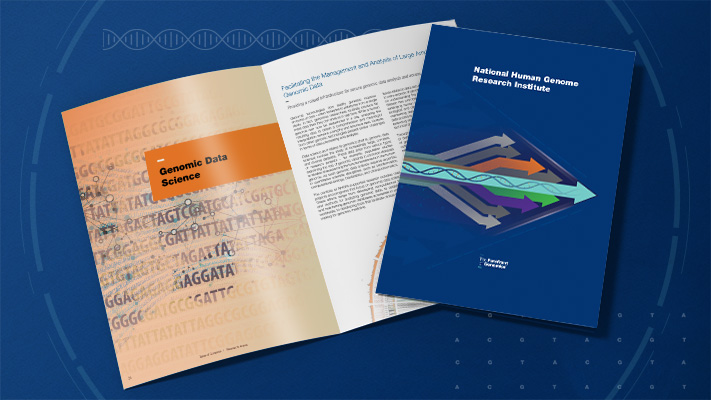Vence Bonham to be appointed acting NHGRI deputy director
Last month, NHGRI convened the 93rd meeting of the National Advisory Council for Human Genome Research. The agenda for the meeting was particularly busy, including the presentation and discussion of four proposals (known as concept clearances) for potential funding opportunities. As always, the Institute developed a comprehensive electronic archive associated with the meeting, which contains videos and relevant documents.
I would like to bring two upcoming virtual events to your attention. The first event is the 5th session of the “Bold predictions for human genomics by 2030” seminar series, which takes place on Monday, June 7, at 3 p.m. Neil Lamb, Ph.D., and Chanda Jefferson will address the bold prediction: “Studies involving analyses of genome sequences and associated phenotypic information for millions of human participants will be regularly featured at school science fairs.” The second event is the 2021 Healthcare Provider Genomics Education Week, which takes place June 7-11 and will include webinars and Twitter chats (see additional details in the story below).
All the best,
![]()
In This Issue
- Vence Bonham to be appointed acting NHGRI deputy director
- Genomics Service Research Program provides critical insights about precision medicine
- New NHGRI brochure features institute history, organization, and areas of research
- NHGRI social media campaign promotes genomic resources for healthcare providers
- NHGRI and NCATS host scientific conference on rare inborn metabolism errors
- NHGRI’s Charles Rotimi elected to the American Academy of Arts and Sciences

Embrace the interdisciplinary and team-oriented nature of genomics research — starting with the Human Genome Project, some of the most challenging genomics endeavors have benefited from the creation and management of large, interdisciplinary research collaborations.
“Interdisciplinary and team-oriented research has been a signature feature of the Human Genome Project from the beginning and has been a major staple of NHGRI-sponsored projects ever since, leading to transformative changes in essentially all major fields of biology and medicine. With the strategic vision of improving human health at the forefront of genomics for the next 10 years, we have highly ambitious goals to fundamentally change how medicine is practiced. Interdisciplinary team research remains an integral component of our efforts. I have been personally involved in several such projects, including positional cloning of a fusion gene in leukemia, the identification of the familial Mediterranean fever gene MEFV, and our current natural history study on patients with a rare genetic disease, familial platelet disorder. Our goals – understanding clinical relevance of all genomic variants identified in the patients and to develop curative therapies for the patients – require the efforts of a team trained in many disciplines.”
Paul P. Liu, M.D., Ph.D. (Deputy Director, NHGRI Division of Intramural Research)
Seminar Series: Bold Predictions for Human Genomics by 2030
Session 5: June 7, 2021, 3:00 p.m. to 4:30 p.m. ET
Prediction: Studies involving analyses of genome sequences and associated phenotypic information for millions of human participants will be regularly featured at school science fairs.
Speakers:
- Neil Lamb, Ph.D., HudsonAlpha Institute for Biotechnology
- Chanda Jefferson, Fairfield County School District; Winnsboro, SC
Moderator:
- Lawrence Brody, Ph.D., NHGRI

About The Genomics Landscape
A monthly update from the NHGRI Director on activities and accomplishments from the institute and the field of genomics.
Last updated: June 3, 2021






